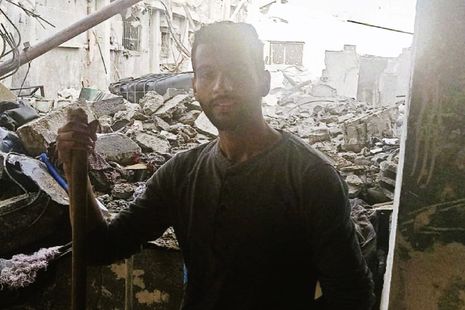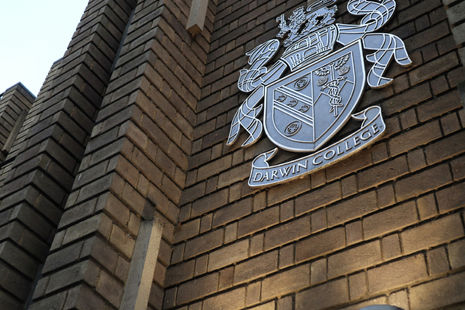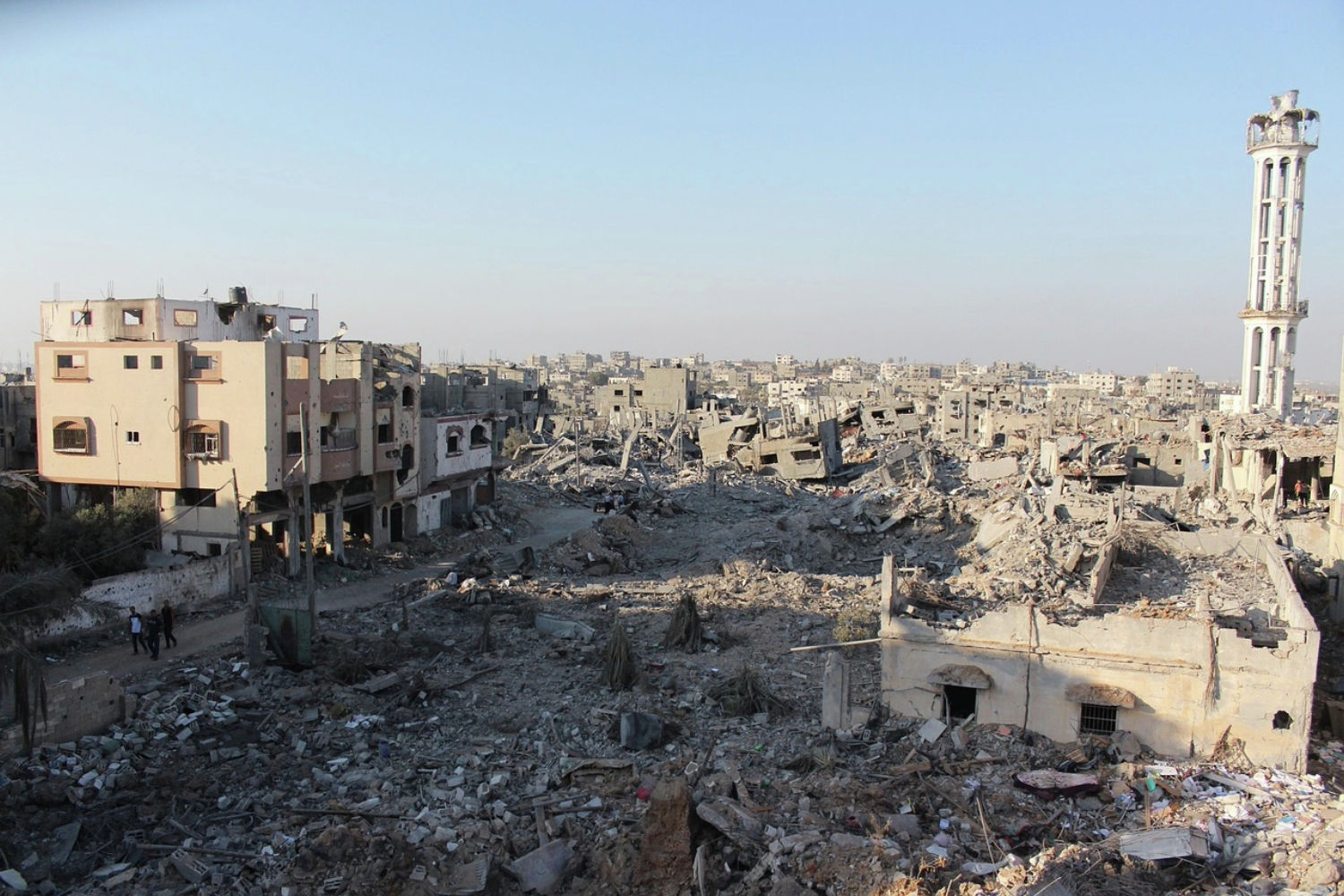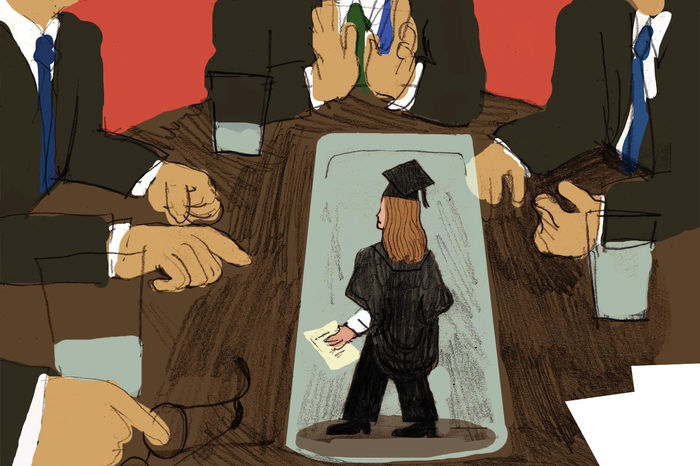When Ahmed received his offer from Cambridge, he was clearing up the rubble of his home. The second ceasefire had just been announced after months of warfare in Gaza. “It was a moment mixed with deep pain and a glimpse of hope,” he remembers.
Ahmed, who has been awarded a full scholarship to study for an MPhil in energy technologies at Darwin College, is one of over 40 Palestinian students who have been awarded scholarships to study at 24 universities in the UK. The “Gaza 40” – which also includes a second Cambridge scholarship recipient, Malak Hani, who is supposed to study History and Politics at Downing College – are being prevented from entering the UK by the visa requirement of submitting biometric data in person. The only Gaza Visa Application Centre (VAC) was closed in October 2023.
“For students like Ahmed and Malak, leaving is a matter of life and death”
According to a report by the Independent International Commission of Inquiry (COI), 90% of schools and universities in Gaza have been destroyed. As of June 2025, the Palestinian Ministry of Education has claimed that at least 16,607 students have been killed and 26,271 wounded. For students like Ahmed and Malak, leaving appears a matter of life and death.
Amid the chaos of displacement, Ahmed found the time to answer my questions about his current situation, his experience of applying to Cambridge, and his hopes for the future.
“Displaced and disoriented – that is the best way I could describe myself at this moment.” Since mid-May, Ahmed and his family of ten have moved ten times. Now located in a storeroom in a building near Al-Shifa complex, he sketches an image of a daily life characterised by uncertainty and terror. “My day usually starts with fetching water, which could take two to three hours […] then I must buy and chop wood for cooking and then search the black market for food at somewhat affordable prices […] sometimes, I am forced to walk for up to six hours a day, back and forth, just to try to get aid – often by chasing down trucks carrying stolen humanitarian supplies.” The extreme danger of this enterprise, in which “dozens of young men [have been] killed and hundreds injured,” is a risk Ahmed takes to feed himself and his family: “it is the only way to get food”. The reduction of meals to two a day, he says, is “barely enough to keep us alive rather than truly living”.
“Our daily routine,” he summarises, “is trying to stay alive.”
“I vividly remember completing my application across three different locations: I started at my home in Jabalia Camp, continued in a school, and finally finished it in another house”

Ahmed looks back on a Cambridge application process riddled with extreme difficulties. “I vividly remember completing my application while being displaced across three different locations: I started at my home in Jabalia Camp, continued in a school, and finally finished it in another house after yet another displacement.” Displacement, instability, and limited internet access transformed seemingly simple endeavours such as downloading a ten-minute educational video into a feat “taking four to six hours”. Nonetheless, Ahmed recounts how his “persistence” and approach of splitting the application into “small achievable steps” such as “gathering information from past students´ experiences,” and “reading the course guides carefully,” enabled him to accomplish the feat despite all external obstacles.
However, one last obstacle, the UK´s inflexible visa requirements for international students, remains in the way of Ahmed and Malak’s journey to Cambridge. Dr. Nora Parr, a researcher at the University of Birmingham and co-Coordinator of a UK Coalition for Students in Gaza, notes the bureaucratic barriers preventing the evacuation of Palestinian students in more detail: “In order to submit a visa application for formal consideration, a student must present themselves for fingerprint and photo registration. With the (visa application) centre closed, and all routes in and out of Gaza blocked since the closure of Rafah in early May 2024, there is no way to complete a visa application.” While there is a biometrics deferral protocol, Dr. Parr tells me that several students’ requests for deferral “have been ignored” and that students who have managed to submit requests via legal councils “must wait weeks until for a decision on whether or not they are eligible”. “The urgent priority,” they stress, “is a faster route to the biometrics waiver, and a clear path out to a third location where they can enrol their biometrics, or a waiver so that they can enrol their biometrics on arrival”.
The lack of concrete action from the British government, contrasting with the successful efforts of Ireland, Germany, France, Belgium, and Italy to evacuate their Palestinian students, has prompted protest. Open letters drafted by initiatives such as Gaza40, and, more recently, the Cambridge SU, have urged the government to enable the entry and ensure the safety of these Palestinian students who are meant to take up their university places in September. Universities, too, are petitioning government officials on their students’ behalf. “Schools are really championing their students, and it’s brilliant,” Dr. Parr tells me.
“When he received his offer from Cambridge, Ahmed returned to clearing his house to make it “liveable” again”
A spokesperson from the University of Cambridge stresses the University’s desire to welcome the “two incredibly talented students” in October. “These students have overcome unimaginable challenges to earn their places, and the University is working tirelessly to help these students find a safe route out of Gaza. We are in regular contact with government officials and have raised it at the highest levels of the Home Office and Foreign Office,” they inform me.

A spokesperson from Darwin College further emphasises the College and the University’s efforts to see Ahmed and Malak arrive safely: “The College is in close contact with Ahmed and, together with the University, is doing all it can to facilitate his arrival ahead of the academic year.”
Towards the end of our interview, Ahmed tells me about his ambitions. “My goal is to continue my studies, pursue a PhD, and work in the industrial sector so I can turn this knowledge into real actions.”
“I strongly believe that an engineer should use their knowledge to make people’s lives easier and better,” he continues. When he received his offer from Cambridge, Ahmed returned to clearing his house to make it “liveable” again. Once he completes his education, he hopes “to return to my country and pass this experience on to the next generation, creating an academic and technical environment that could help students innovate and produce.”
But first, he hopes that the UK government will give him, and other Palestinian students, the chance to escape the war and pursue their education in safety. “I am confident that the British government will find a way, just as the Irish, French, and Italians have done in facilitating visa procedures for stranded students in Gaza.” Only time will tell.


